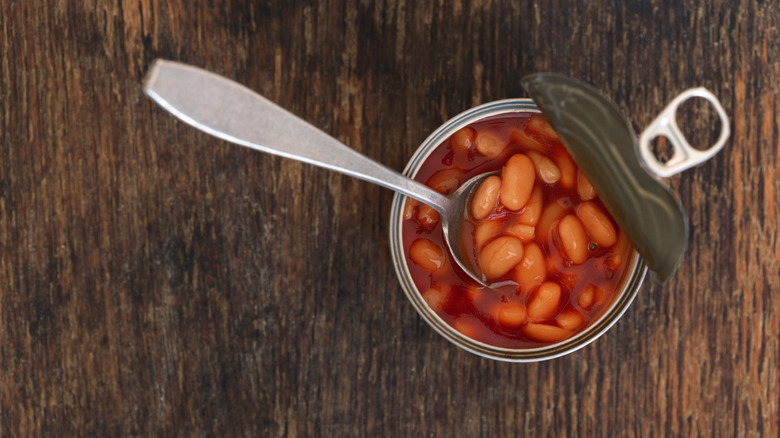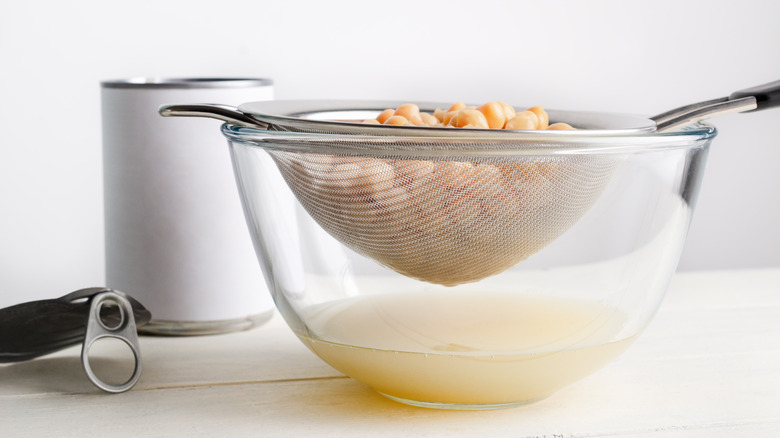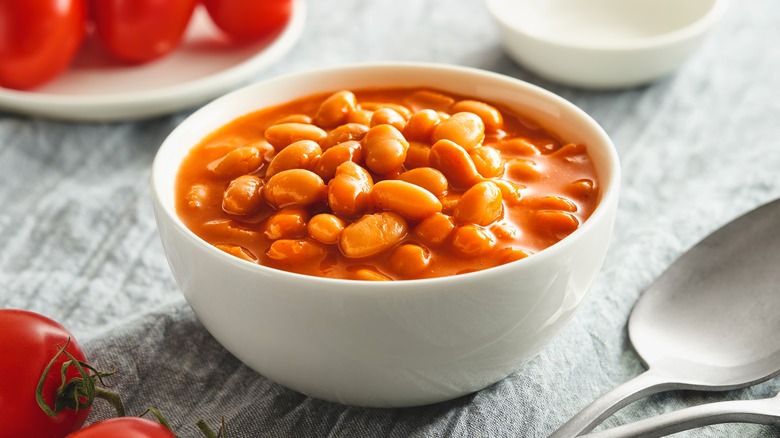The Case For Rinsing Your Canned Beans
Canned beans of all kinds — kidney beans, chickpeas, white beans, and more — are all solid staples to have in your pantry. They are great sources of protein, fiber, and iron. Moreover, they spruce up a salad in a jiff and can serve as star players in a three-bean vegetarian chili. There are many varieties of beans, each with their own unique flavors — and they're all excellent ingredients in their own ways.
Keeping canned beans around also means you have more time to use them. They can last for at least a year unopened in the pantry. And that's because they are canned with a preservation liquid that keeps them stable. The liquid is a blend of salt, water, and starch released from the beans. The salt helps keep the beans tasting fresh. The liquid is completely edible, but be warned, it is very salty. And this determines whether you want to rinse your beans.
The salt content
If you're making something fresh and raw, like a jalapeño-lime three bean salad, then you will want to drain and rinse canned beans. Why? If you simply drain the beans, the salt content will remain. Rinsing the beans will help get rid of the saltiness, which otherwise would overpower a light and bright salad.
When you're cooking with beans it's not always necessary to rinse the beans because the saltiness could be a welcome addition to the dish. Some people dump the entire can, liquid and all, into soups and stews. Know that doing so will add a bunch of salt to your dish, so season accordingly.
Also, the liquid has value. The liquid in canned chickpeas is called aquafaba, and it's full of starchy goodness. Aquafaba can be used in the place of egg whites in cocktails or whipped into a foam and used for egg-free meringues.
You may toot less
It is as nature intended — beans make you pass gas. There's not a whole lot you can do about it, but there is a simple way to at least reduce the amount of tooting. Complex sugars in the beans called oligosaccharides make you bloat and feel gassy. Rinsing canned beans with cold water removes some of these sugars, resulting in a less gassy feeling at the end of the meal.
In an elaborate experiment by Serious Eats to test several methods to reduce gas from beans, they reported a resounding yes when it came to whether you should rinse canned beans. They reported, "Gram per gram, rinsed beans are over 20% less farty than unrinsed." Dry, soaked beans reported more gassiness than canned varieties. They also deduced that adding bay leaves to cooking beans also aided in reducing gas, though it is not clear why that is.
It is important to note that the advice to rinse beans only applies to the plain canned varieties, and not the flavored kinds in barbecue sauce or other flavorings. So, go fearlessly and stock up on all the canned beans. A little gas never hurt anybody.


